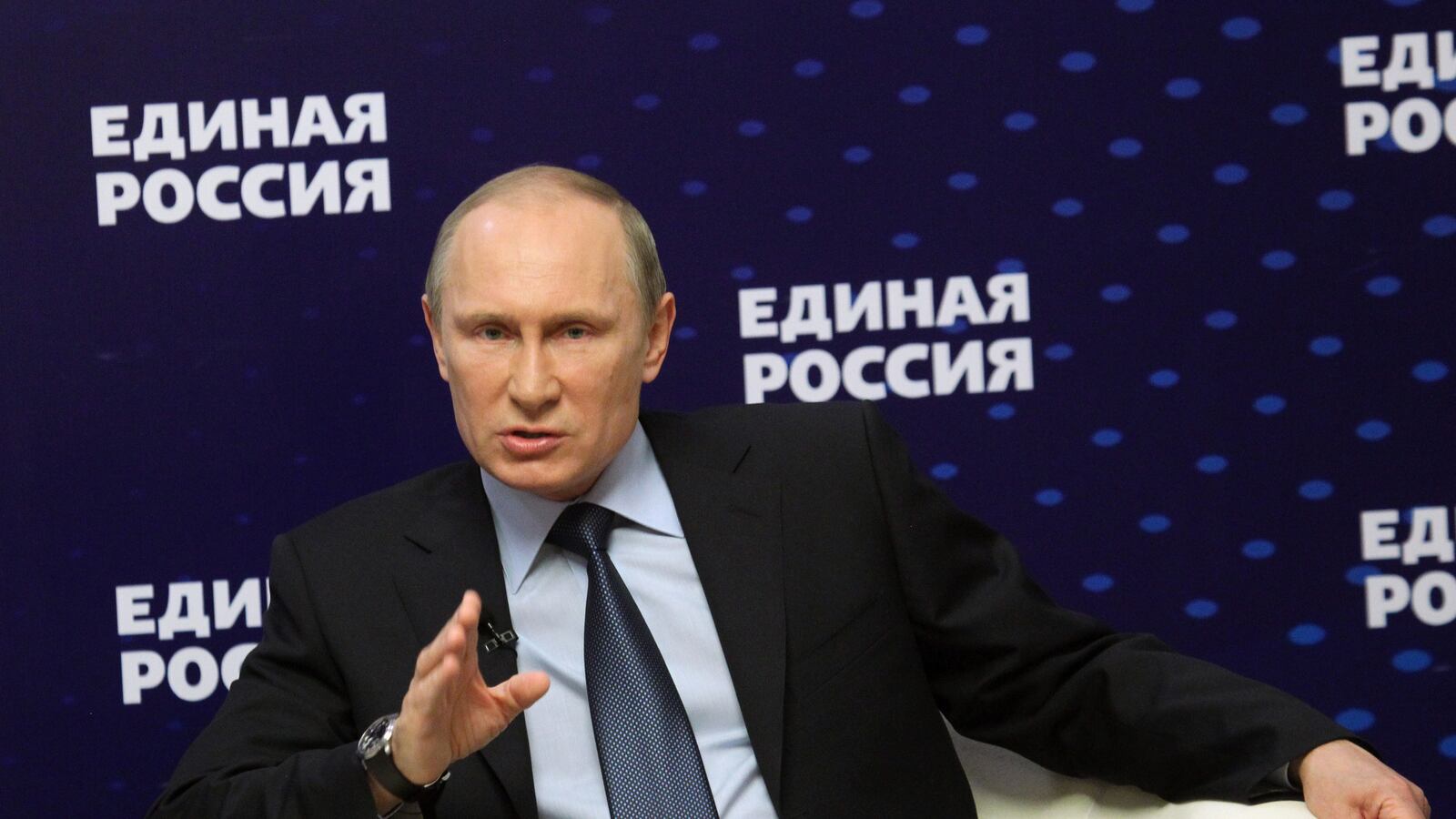Ever since he came to power in 2000, Vladimir Putin has doggedly pursued one aim: to restore Russia’s prestige and geopolitical might after the political and economic implosions that accompanied the fall of the Soviet Union. Bringing the former republics of the old USSR back into Moscow’s orbit has been a crucial plank of Putin’s strategy, and a goal to which the Kremlin has devoted vast diplomatic and financial resources.

Next month that strategy is set to suffer a serious setback. Ukraine and four other ex-Soviet republics are preparing to sign an Association Agreement with the European Union in Vilnius in November. The agreement is effectively a free trade deal with Europe—but one which comes loaded with conditions that will commit the EU’s new ex-Soviet partners to enforce a raft of European standards in everything from free speech to food hygiene. In Ukraine and Moldova, the Agreement is seen by many hopeful citizens as a first step forwards possible membership of the European Union itself.
Russia has tried—and failed—to persuade the same ex-Soviet nations to join the Kremlin’s rival trade bloc, a Customs Union that includes Russia, Belarus and Kazakhstan. The Kremlin has offered generous incentives—such as half-price gas for Ukraine—to woo its neighbors. It has also threatened dire consequences if they don’t join. In August, Russia apparently arbitrarily stepped up customs inspections at all border posts with Ukraine, halting all imports for a week. The mini-blockade was meant as a warning to Kiev of the consequences of choosing the EU over Russia. In September Russia’s Department of Public Health banned all imports of Moldovan wine, allegedly on health grounds, inflicting serious damage on the tiny 3.5 million-strong nation’s fragile economy (Russia used the same tactic against Georgia in 2007). Just to make the message clear, Sergei Glazev, an adviser to Vladimir Putin, told reporters that Ukraine’s signing the EU Agreement would be “suicidal.”
Soon after Putin invited Armenian President Serzh Sargsyan in the Kremlin for a long one-on-one meeting. Sargsyan had been set to sign the EU deal too—but after his talks with Putin, he emerged promising to join Russia’s customs union after all. Armenia is strongly dependent on Russian military aid—and while the details of the meeting are secret, it’s obvious that Putin made his Armenian ally an offer he couldn’t refuse.
But though Armenia may have caved, Russia’s threats seem to have strengthened, rather than weakened, the resolve of Ukraine, Moldova, Azerbaijan and Georgia to join.
Ukraine is the biggest geo-political prize—it was historically the wealthiest and most populous republic in the Soviet Union after Russia itself, and culturally the closest. Recent opinion polls show that Russia has decisively lost the battle for public opinion among Ukraine’s 45 million people. In an October poll, 53 percent of Ukrainians supported accession to the EU, while only 35 percent were against. Forty seven percent believed that the EU trade agreement be a better deal for Ukraine, while only 34 percent favored the Russian Customs Union. Even in the Russian-speaking eastern part of the country, traditionally the heartland of pro-Russian sentiment, opinion is split almost evenly over partnership with the EU. The deepest irony of all is that Ukraine’s decisive turn westwards has been directed by Ukrainian President Viktor Yanukovych, whom Moscow once considered staunchly pro-Russian and who was supported by Putin in his first election bid in 2004 (which Yanukovych initially won in a rigged vote which was overturned in the people-power Orange Revolution).
The deal it not only a setback for Putin—it also signals a comeback for the EU as well. The ongoing crisis in the Euro and a rising tide of Euro-skepticism in Northern European countries strongly undermined Europe’s ‘soft power.’ Turkey, which has been an official candidate for EU membership since 2005, made no secret that its ardor for joining the European project had cooled. Public support among Turks for EU membership has slumped 44 percent, down from 73 percent in 2004, according to a survey in July by Transatlantic Trends. Part of the slump is due to Turks’ disillusionment at the slowness of the process, and to a growing feeling that Europe does not want them—compounded by ‘no’ votes from many European countries on Istanbul’s bid for the 2020 Olympic Games. But part of it is also because Turks, whose economy continues to grow at six percent a year, want no part of neighboring Greece’s deep economic crisis.
The EU’s failure to engage with Turkey makes its deal with Ukraine and Moldova all the more important in terms of its credibility as both a civilizational and economic beacon for its neighbors. More, it marks the decisive failure of Russia to create a credible alternative regional power bloc.






